Get Mobile with a Medicare-Covered Mobility Scooter
Please note that MobilityAngel.com does not accept Medicare. This article explains how, if you qualify for Medicare Part B, Medicare can help pay for the cost of a scooter.
Get Mobile with a Medicare-Covered Mobility Scooter
As we age, maintaining an active and independent lifestyle can become increasingly difficult due to mobility challenges. However, for those who qualify, Medicare Part B provides coverage for power mobility scooters, offering a lifeline to regain freedom of movement and independence. In this comprehensive guide, we'll explore the ins and outs of obtaining a Medicare-covered mobility scooter, including eligibility requirements, the process of purchasing an approved scooter, out-of-pocket costs, and alternative options for those who don't qualify for Medicare coverage.
Qualifying for a Medicare Covered Scooter
If you are 65 years or older, a U.S. citizen or permanent resident for at least 5 consecutive years, and enrolled in Medicare Part B (Medical Insurance), you may be eligible to receive a motorized mobility scooter covered by your medical insurance. However, it's important to note that there are specific requirements you must meet to qualify for coverage.
Medically Necessary Requirement
Medicare will only cover the cost of a mobility scooter if it is deemed medically necessary for your condition. This means that you must have a mobility limitation that makes the use of a scooter reasonable and necessary for you to perform basic daily activities.
Face-to-Face Appointment and Prescription
Before Medicare will consider paying for your scooter, you must schedule a face-to-face appointment with a Medicare-approved doctor or healthcare provider. During this appointment, your provider will evaluate your mobility needs and, if appropriate, provide you with a written prescription for a mobility scooter.
Purchasing a Medicare Approved Scooter
Once you have a valid prescription, the next step is to purchase your mobility scooter from a Medicare-enrolled durable medical equipment (DME) supplier that accepts Medicare assignment. It's crucial to verify that both your doctor and the DME supplier you choose are enrolled in Medicare, as they must comply with a myriad of regulations to maintain their enrollment status.
Working with a Medicare-Approved Supplier
When working with a Medicare-approved DME supplier, it's essential to ask if they participate in Medicare before you make a purchase. Participating suppliers are required to accept Medicare's assignment, which means they agree to charge you only the Medicare-approved amount for the scooter. If a supplier is enrolled in Medicare but is not a "participating" supplier, they may choose not to accept the assignment, which could result in higher out-of-pocket costs for you.
Out-of-Pocket Costs for a Medicare Scooter
The 20% Coinsurance
If your DME supplier is willing to work with your Medicare insurance and accept the assignment costs, you'll typically be responsible for paying 20% of the amount approved by Medicare for your mobility scooter. The remaining 80% will be covered by your Part B benefits, after you have met your annual deductible.
Medicare's Competitive Bidding Program
Depending on where you live, you may be subject to Medicare's Competitive Bidding Program for durable medical equipment, prosthetics, orthotics, and supplies (DMEPOS). This program allows suppliers to submit bids to provide certain medical equipment and supplies to Medicare beneficiaries in specific geographic areas. Medicare uses these bids to set the amount it pays for each item, which can impact the amount you'll need to pay out-of-pocket for your mobility scooter. It's essential to check with your DME supplier to understand how the Competitive Bidding Program may affect your costs.
Grandfathered Suppliers
In some cases, you may be able to continue renting equipment from your current DME supplier, even if they are not a Medicare contract supplier, through the "grandfathered" supplier rule. This rule typically applies to oxygen and oxygen equipment but may also extend to mobility scooters in certain circumstances. If your supplier is considered a grandfathered supplier, you'll be able to continue working with them until your rental period ends. After that, you'll need to switch to a Medicare contract supplier to maintain coverage for any new equipment. If your current supplier chooses not to become a grandfathered supplier, you'll have two options: either pay out-of-pocket to continue working with them or switch to a Medicare contract supplier to enjoy the benefits of Part B coverage.
Buying a Mobility Scooter Without Medicare
For those who don't qualify for Medicare Part B coverage, the prospect of purchasing a mobility scooter out-of-pocket can be daunting. However, thanks to the abundance of online mobility retailers, finding an affordable and high-quality scooter has never been easier.
Top Mobility Websites for Scooter Shopping
Websites like MobilityAngel.com offer a massive selection of mobility scooters at reasonable prices, catering to a wide range of needs and budgets. Whether you're looking for a compact travel scooter, a sturdy 4-wheel model for stability, or an affordable 3-wheel option for tight spaces, these online retailers have you covered.
Expert Guidance and Customer Support
One of the significant advantages of shopping for a mobility scooter online is the access to expert guidance and customer support. Top mobility websites typically have knowledgeable staff available to assist you in selecting the right scooter for your specific needs, ensuring that you make an informed and confident purchase decision.
Typical Price Range for Non-Medicare Scooters
While the cost of a mobility scooter can vary depending on the features and capabilities you require, most non-Medicare scooters fall within the range of $750 to $2,000. This price range often includes basic models suitable for indoor use, as well as more robust outdoor scooters designed for longer-range travel and varying terrains.
As the name suggests, travel mobility scooters are designed with portability in mind. These compact and lightweight scooters are perfect for those who need to navigate tight spaces or transport their scooter in a vehicle. Many travel scooters can be easily disassembled and folded for convenient storage and transportation.
Three-wheel mobility scooters offer a unique combination of maneuverability and affordability. With a tighter turning radius and a more compact footprint, these scooters are ideal for indoor use or navigating crowded areas. They are also generally more affordable than their 4-wheel counterparts, making them an excellent option for those on a budget.
For those seeking maximum stability and a smoother ride, 4-wheel mobility scooters are the way to go. These scooters typically have a larger footprint and a more substantial build, making them better suited for outdoor use and longer-distance travel. Many 4-wheel models also offer advanced features like suspension systems and higher weight capacities.
Maintaining Independence with a Mobility Scooter
Whether you qualify for Medicare coverage or choose to purchase a scooter out-of-pocket, investing in a mobility solution can be a life-changing decision. A power mobility scooter not only helps you overcome physical limitations but also empowers you to maintain an active and independent lifestyle. By working closely with mobility experts and considering your unique needs and preferences, you can find the perfect scooter to help you navigate your daily activities with confidence and ease. Remember, mobility is a key component of quality of life, and with the right scooter, you can continue to explore the world around you, connect with loved ones, and pursue your passions without compromising your independence.



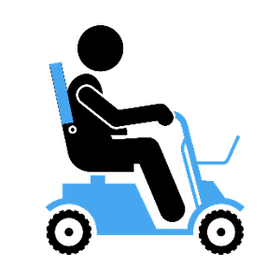
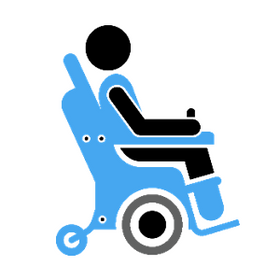
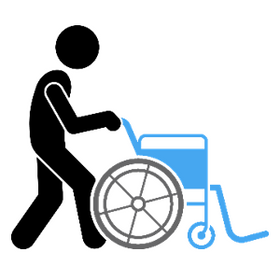
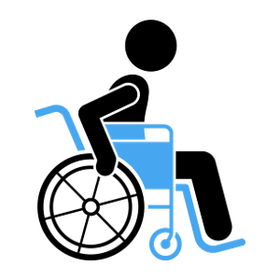

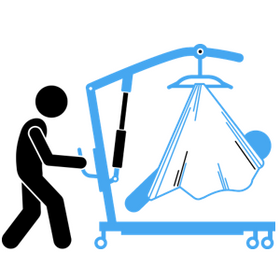
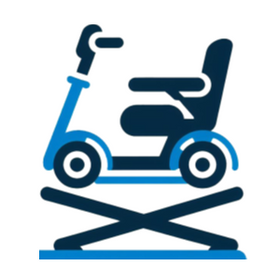



 Book a Phone Call
Book a Phone Call